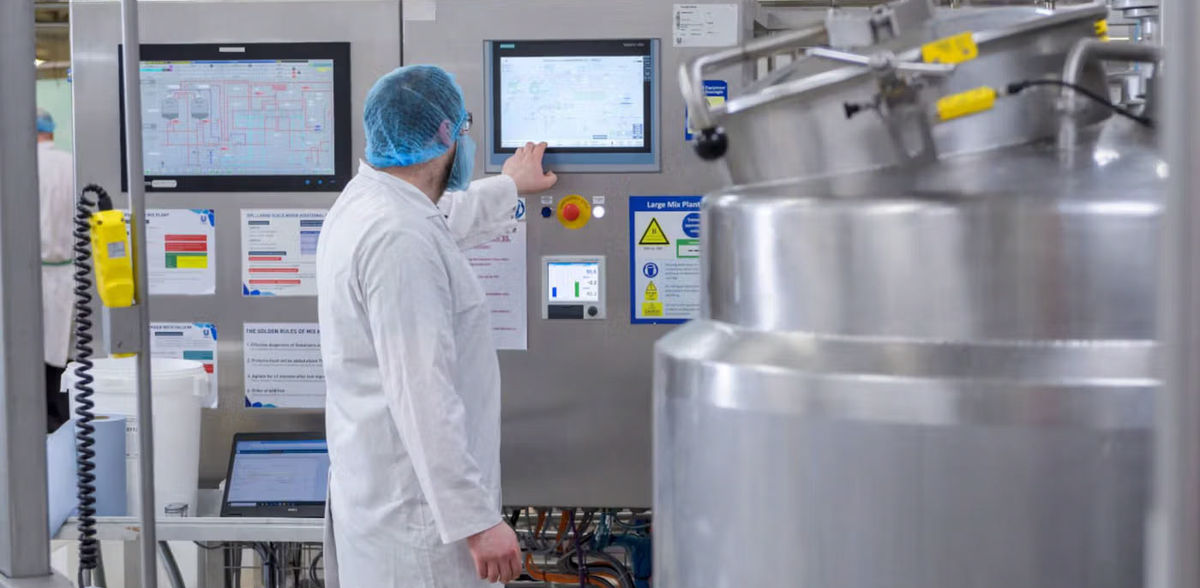How AI is transforming Unilever Ice Cream’s end-to-end supply chain
Advertisement
Discover how Unilever’s ice cream supply chain is leveraging AI and digital tools to respond to changing weather patterns, optimise inventory, reduce waste and identify growth opportunities in a highly seasonal business.
-
Our ice cream supply chain has 35 factories and an estimated 3 million freezers across 60 countries
AI analysis of weather data helps adjust ice cream sales forecasts to cut waste
Data from 100,000 AI-enabled freezers has increased retail orders and sales by up to 30%
The weather is more than a conversational icebreaker for Unilever’s Ice Cream Supply Chain Long-Term Planning Lead, Elif Cakir. It’s a critical factor.
Our ice cream supply chain spans 60 countries and 35 factory production lines. In regions where ice cream sales are highly seasonable, consumer demand is significantly influenced by weather conditions. In a European summer month like June, even a 1°C rise in temperature can substantially impact sales forecasts.
Given this variability, Unilever’s AI and supply chain systems have become more agile to address fluctuations.
“It’s our job to ensure Ice Cream’s end-to-end supply chain – from our factory production lines to our estimated 3 million ice cream freezer cabinets – is prepared to respond to fast-changing weather patterns,” Elif says.
Enhancing production planning to meet market needs
Teams are using AI and digital tools to analyse data insights, including weather inputs, to provide more accurate volume forecasts. In Sweden, for example, forecast accuracy has improved by 10%.
Having a more precise understanding of the expected sales for our ice cream brands each month means production lines can be adjusted and costs reduced accordingly.
“Using AI we understand where to sell; how much we are going to sell; in which cabinet we are going to sell; and when and where to send our orders in the most efficient way,” Elif says.
“Thanks to forecasting process improvement, our service has increased while costs have been optimised. All of which has contributed to our overall service level to consumers increasing to world-class levels. We’re in the top tier in most of our markets,” Elif adds.
Ensuring an agile response to changing weather patterns
Ice Cream’s production volumes depend on prebuilt forecasts developed at the beginning of the year. Now AI can provide the team with probabilities for temperature ranges that more accurately predict demand in key markets.
This ensures long-term plans and volumes are in place for any potential changes in weather conditions.
In the shorter term, if there is an unexpected heatwave in one of our markets, our inventory systems enable us to identify available stock locations and reallocate key products to meet any increase in demand.
We also optimise route plans to ensure our refrigerated fleet delivers our products in ways that reduce energy use too.
Reducing waste and improving cost efficiencies in manufacturing
Alongside more accurate production volumes, AI is also helping Ice Cream’s factories run more efficient production lines.
Using a live AI system which focuses on optimum variables, production performance is improved and waste during production is minimised.
By streamlining processes, AI is saving Ice Cream up to 10% of some raw materials which is significant for high-value ingredients such as vanilla and cocoa.
Providing inventory updates from freezers in real time
The game-changer for forecasting, however, will be the roll-out of image capture and AI technology throughout Unilever’s freezer cabinets worldwide. Currently, 100,000 are AI-enabled and further roll-out is in progress.
“This will mean I don’t need to generate forecasts with different parameters because I’ll have stock insights in real time,” Elif adds.
Industry recognition
In 2024, Unilever was recognised by Gartner as one of four Supply Chain Masters for its use of AI and digital tools to manage one of the largest producer-to-consumer cold chains in the world.
It’s an accolade our supply chain teams have now won six years in a row.
“When I joined Unilever, I made forecast calculations using formulae I learned from college,” Elif says.
“Now, strategic use of AI and digital tools means my team can be freed up from repetitive tasks like number crunching. They can spend time developing agile strategies that will deliver growth for our business,” she adds.
Digital transformation is shaping the future of our ice cream business. By leveraging real-time data, optimising logistics and providing our people with the right skillsets, we are rapidly changing our supply chains to drive growth.




























































